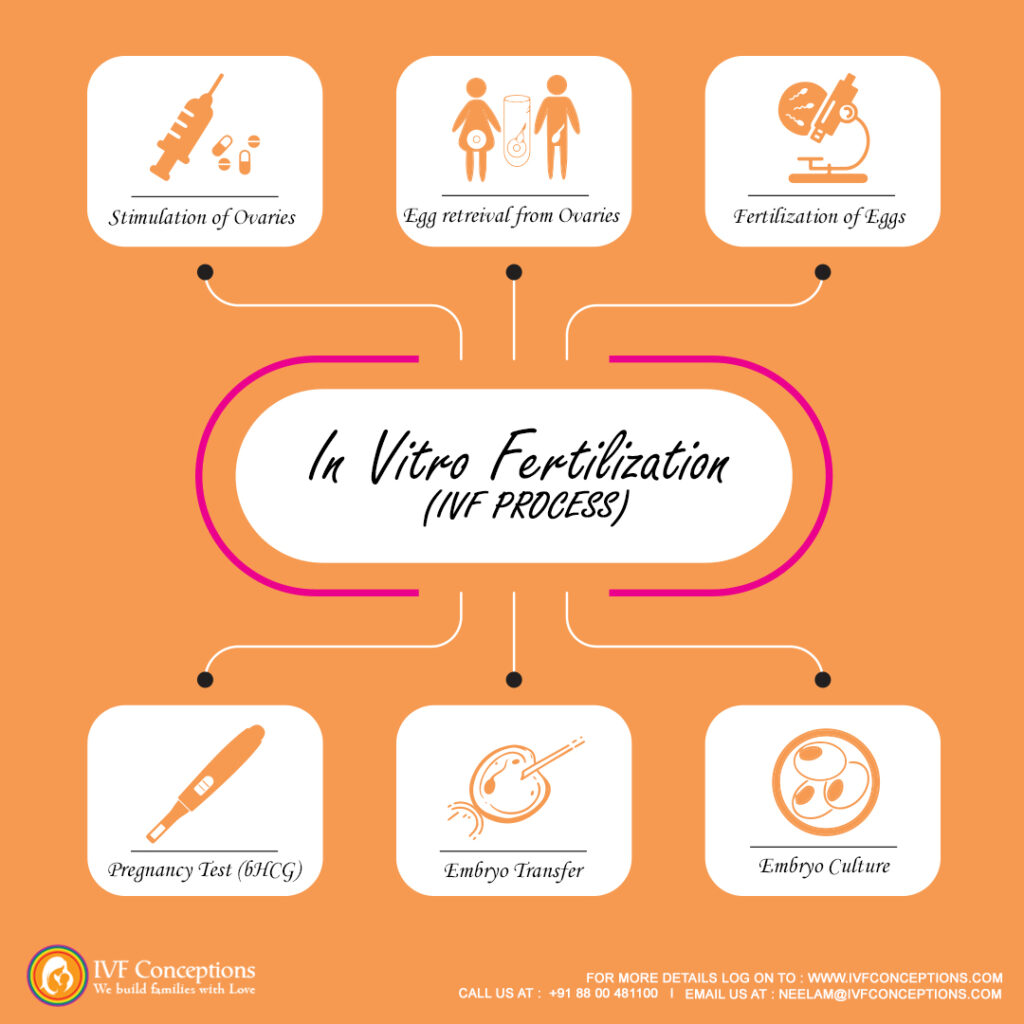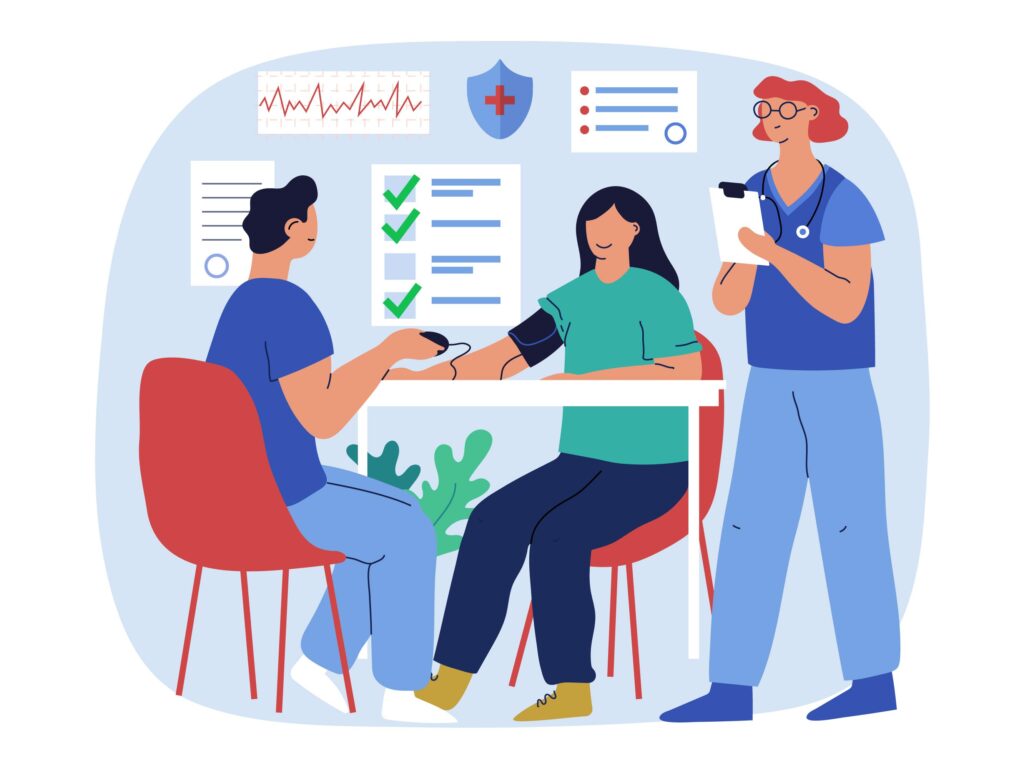Surrogacy Terminology and Surrogacy Acronym 101

Surrogacy Terminology and Surrogacy Acronym 101: A Beginner’s Guide
Are you diving into the world of surrogacy and feeling overwhelmed by all the new terms and acronyms? You’re not alone! Surrogacy terminology can seem complex at first, but understanding key surrogacy acronyms and definitions is essential for anyone starting this life-changing journey.
From IVF (In Vitro Fertilization) and GS (Gestational Surrogacy) to IP (Intended Parents) and ART (Assisted Reproductive Technology), knowing these terms will help you navigate the process with confidence. Whether you’re working with a surrogacy agency, an independent surrogate, or exploring gestational vs. traditional surrogacy, a clear grasp of surrogacy-related terms will make your experience smoother.
- Book an online appointment: Get a free online consultation.
- Call\W:+91-8800481100 Email:neelam@ivfconceptions.com
By familiarizing yourself with the surrogacy glossary, you’ll be better equipped to communicate with medical professionals, legal experts, and agencies, ensuring a well-informed and stress-free surrogacy journey.
This guide will break down the main surrogacy terms and clear up the acronyms you’ll see. We’ll cover everything from the basics of third-party reproduction and IVF to the different surrogacy arrangements. By the end, you’ll feel ready to tackle the surrogacy world with confidence.
More Resources to Read:
Infertility Treatment and Surrogacy Process
9 Factors To Improve IVF Pregnancy Rate
International Surrogacy Options Worldwide
Surrogacy Guide for Surrogate Mothers
Key Takeaways
- Surrogacy is a complex process with specialized terminology and acronyms.
- Understanding the key terms, such as third-party reproduction and IVF, is crucial for navigating the surrogacy journey.
- Familiarizing yourself with the different types of surrogacy arrangements, including traditional and gestational surrogacy, will help you make informed decisions.
- Knowing the roles of the various parties involved, from intended parents to surrogacy attorneys, will provide a comprehensive understanding of the surrogacy process.
- Mastering surrogacy terminology and acronyms will empower you to communicate effectively with your surrogacy team and make informed decisions throughout the journey.
Introduction to Surrogacy Terminology
Exploring surrogacy means getting to know key terms. A big idea is third party reproduction. It means someone else helps in making a baby, not the ones who will raise the child. This often includes a gestational carrier, who carries the pregnancy for the parents.
Understanding Third Party Reproduction
Third party reproduction includes many assisted reproductive technologies, like in vitro fertilization (IVF). Here, an egg and sperm are combined in a lab, and the embryo goes into the gestational carrier’s uterus. This helps parents who can’t carry a pregnancy themselves to have a child with the help of a surrogate.

In Vitro Fertilization (IVF) Process
- Ovarian stimulation: The intended mother or donor eggs gets treatment to make many mature eggs.
- Egg fertilization: The eggs and sperm meet in a lab, creating embryos through fertilization.
- Embryo transfer: The embryos go into the gestational carrier’s uterus.
IVF is key in many surrogacy cases. It lets the intended parents have a child that’s genetically theirs, by putting an embryo in the surrogate’s uterus.
“Surrogacy is a complex and nuanced topic, and understanding the terminology is the first step in navigating this journey.”
| Key Term | Definition |
| Third Party Reproduction | The involvement of someone other than the individual or couple who will raise the child in the reproductive process. |
| Gestational Carrier | The person who carries and delivers the child for the intended parents. |
| Intended Parents | The individual or couple who will raise the child born through surrogacy. |
| In Vitro Fertilization (IVF) | The process of fertilizing an egg with sperm outside the body, then transferring the resulting embryo into the uterus. |
| Egg Fertilization | The process of combining an egg and sperm to create an embryo. |
| Embryo Transfer | The placement of the embryo into the uterus of the gestational carrier. |
Types of Surrogacy Arrangements
There are two main types of surrogacy: traditional and gestational. It’s important to know the differences before choosing surrogacy to become parents.
Traditional Surrogacy
In traditional surrogacy, the surrogate is also the egg donor. This means the baby shares a genetic link with the surrogate. The baby is made when the surrogate’s egg is fertilized with sperm, either through IUI or IVF. Then, the surrogate carries the pregnancy and delivers the child.
Gestational Surrogacy
Gestational surrogacy uses an embryo made through IVF, which is then put into the surrogate’s womb. The surrogate doesn’t have a genetic link to the baby. This method separates the roles of egg donor and surrogate, with the parents or another donor providing the genetic material.
| Traditional Surrogacy | Gestational Surrogacy |
| Surrogate mother is also the egg donor | Surrogate mother has no genetic link to the baby |
| Conception typically through IUI or IVF | Embryo created through IVF is transferred to the surrogate |
| Surrogate carries the pregnancy and gives birth | Surrogate carries the pregnancy and gives birth |
Choosing between traditional and gestational surrogacy depends on many factors, like personal choices and legal matters. It’s key to understand the options well and seek advice from experts to make the right choice.
“Surrogacy is an incredibly complex and emotional process, and it’s crucial to understand the different types of arrangements to make an informed decision.”
Commercial vs. Altruistic Surrogacy
Surrogacy can be divided into two main types: commercial Surrogacy and altruistic Surrogacy. It’s key to know the differences when thinking about surrogacy.
In commercial surrogacy, the carrier gets paid more than just medical costs. They get paid for their time, effort, and any risks during pregnancy. This type is legal in some countries, but rules change.
Altruistic surrogacy means the carrier does it for family or friends without extra pay. They only get back what pregnancy and birth cost. This way, they help without getting paid more.
| Commercial Surrogacy | Altruistic Surrogacy |
| Surrogate is financially compensated beyond medical expenses | Surrogate is only compensated for medical expenses |
| Surrogate receives a fee for their services | Surrogate volunteers without additional financial compensation |
| Legal in several countries, with varying regulations | More common in countries where commercial surrogacy is prohibited |
Choosing between commercial and altruistic surrogacy depends on what you want, the laws, and who’s available. It’s smart to look into both types before deciding.
Agency vs. Independent Surrogacy
There are two main ways to approach surrogacy: agency surrogacy and independent surrogacy. Knowing the differences helps intended parents choose what’s best for them and their budget.
Agency Surrogacy
Agency surrogacy means working with a licensed surrogacy agency. These agencies have a team of experts, like surrogacy attorneys and fertility clinic specialists. They guide intended parents through the whole process.
The agency takes care of screening, matching, and legal stuff. This gives a structured way for intended parents to go through surrogacy.
Independent Surrogacy

Independent or private surrogacy lets intended parents take charge. They might find a gestational carrier on their own or use personal connections. This way, they could save money but have to handle more of the process themselves.
They need to deal with the legal and logistical parts of surrogacy without an agency’s help.
| Feature | Agency Surrogacy | Independent Surrogacy |
| Screening Process | Comprehensive screening and matching by the agency | Intended parents are responsible for screening and matching |
| Legal Representation | Agency provides surrogacy attorneys to handle legal contracts and compliance | Intended parents must secure their own surrogacy attorney |
| Support Services | Agency offers a range of support services, including counseling and case management | Limited to no support services beyond legal representation |
| Cost of surrogacy | Generally higher due to agency fees and comprehensive services | Potentially lower, but requires more personal involvement and management |
Choosing between agency surrogacy and independent surrogacy depends on what matters most to intended parents. Both have pros and cons. It’s key to think about what’s most important to you.
Identified Surrogacy
Identified surrogacy, also known as private surrogacy, means the intended parents work with a surrogate they know ahead of time. This method has its benefits but also has challenges to think about.
One big plus is the trust and familiarity that can grow between the parents and the surrogate. Having a relationship with the surrogate makes talking openly easier. This makes the surrogacy process smoother for everyone.
But, this close bond can also bring emotional and financial risks. Handling family matters and money issues can be tricky. It’s key to have strong legal support to protect everyone’s interests.
| Benefits of Identified Surrogacy | Potential Challenges of Identified Surrogacy |
| Stronger sense of trust and communication Easier to coordinate logistics and schedules Potential for a deeper personal connection | Increased risk of financial disputes Potential strain on family relationships Difficulty setting and maintaining boundaries |
Choosing identified surrogacy needs careful thought. Know the pros and cons well. Getting advice from experts like surrogacy lawyers and counselors can make the journey smoother.
Whether you pick identified surrogacy or another option, focus on trust, talking, and the well-being of all. With careful planning and attention, you can make a surrogacy journey rewarding and fulfilling.
Assisted Reproductive Technology (ART)

Assisted Reproductive Technology (ART) is a set of medical procedures for people or couples facing fertility issues. It includes methods like in vitro fertilization (IVF), where eggs are fertilized outside the body and then put back into the uterus. ART has changed the way we approach fertility treatment, giving hope to those with infertility.
The ART process has several key steps:
- Ovarian Stimulation: Doctors give medications to make the ovaries produce many mature eggs for retrieval.
- Egg Retrieval: Eggs are taken out of the ovaries through a small surgery called egg retrieval or aspiration.
- Fertilization: The eggs are mixed with sperm in a lab, either through normal insemination or intracytoplasmic sperm injection (ICSI), to help fertilize them.
- Embryo Culture: The fertilized eggs, now embryos, grow in a lab for a few days.
- Embryo Transfer: Healthy embryos are then put back into the woman’s uterus to try to get pregnant.
ART has changed the lives of many people and couples facing fertility problems. It can help overcome issues like age, genetic problems, or other health conditions, increasing the chances of getting pregnant. But, the success of ART depends on many things, and it’s key to talk with a fertility expert to find the best approach.
Learning about assisted reproductive technology helps people and couples make informed choices about their fertility. This way, they can move closer to their dream of having a family.
Key Players in the Surrogacy Process
Surrogacy involves working together with several important people. From the parents wanting a child to the lawyers, each person or group is crucial for a successful surrogacy. Let’s look at who these main players are.
Intended Parent(s)
The intended parent(s) want to have a child through surrogacy. They could be single, a same-sex couple, or a couple. They pick the carrier, talk about the contract, and make sure the money matters are sorted.
Gestational Carrier/Surrogate
The carrier, or surrogate, carries the pregnancy for the parents. She goes through a health check and agrees to carry the pregnancy to full term. She gets paid for her work and her rights are safe in the agreement.
Egg and Sperm Donors
Sometimes, parents need donor eggs or sperm to have a child. Donors go through a lot of checks to make sure the baby will be healthy. Parents work with clinics and Egg Donor agencies to find the right donors.
Fertility Clinic
The fertility clinic is key in surrogacy. They do medical work like IVF, embryo transfer, and check on the carrier’s pregnancy. They work with parents, carriers, and agencies to make sure the medical parts go smoothly.
Surrogacy Agency

A surrogacy agency helps with the surrogacy process. They help parents find a good carrier, offer legal and emotional support, and manage the paperwork.
Surrogacy Attorney
The surrogacy lawyer makes sure everyone’s rights are looked after. They write and check the surrogacy contract, give legal advice, and help with the tricky legal bits of surrogacy.
Knowing what each person does helps parents feel more confident in the surrogacy process. It makes their journey to becoming parents smoother.
Surrogacy Terminology and Surrogacy Acronym 101
Entering the world of surrogacy can feel overwhelming, especially with all the acronyms and terms. Knowing what IVF (in vitro fertilization) and GC/GS (gestational carrier/surrogate) mean can make things clearer. It helps you understand the process and talk better with your healthcare team.
Common Surrogacy Acronyms
- IVF: In vitro fertilization, a process where eggs are fertilized outside the body and then put into the GC/GS (gestational carrier/surrogate).
- ET: Embryo transfer, the act of putting the fertilized egg(s) into the GC/GS‘s uterus.
- IPs: Intended parents, those who want to have a child through surrogacy.
- GC/GS: Gestational carrier/surrogate, the person who carries the pregnancy for the IPs.
- BCP: Birth control pills, used to control the GC/GS‘s menstrual cycle before the ET.
- PIO: Progesterone in oil, a hormone that helps support the GC/GS‘s uterine lining during pregnancy.
- BFP: Big fat positive, a term for a positive pregnancy test result.
- BFN: Big fat negative, a term for a negative pregnancy test result.
- 2WW: Two-week wait, the time between the ET and the pregnancy test.
- DP3DT: Days past three-day transfer, a way to measure the days since the ET.
- POAS: Pee on a stick, taking a pregnancy test.
- D&C: Dilation and curettage, a surgery to remove tissue from the uterus.
- EDD: Expected due date, the date when the GC/GS is expected to give birth.
- VBAC: Vaginal birth after Cesarean, a delivery where the GC/GS delivers the baby vaginally after a previous Cesarean section.
Knowing these surrogacy acronyms can make the process clearer and more confident. Always ask your healthcare team for more information if you need it.
More Resources to Read:
Surrogacy Guide for Surrogate Mothers
Surrogacy Guide for Intended Parents
How does the surrogacy process work
Conclusion
Your surrogacy journey is full of special terms and acronyms. Each one is important for the surrogacy process. This guide has given you the knowledge to move through the surrogacy world with confidence.
If you’re an intended parent wanting to grow your family or a gestational carrier looking to help, learning surrogacy terms is key. It helps you talk better with your fertility clinic, surrogacy agency, and surrogacy attorney. This makes your surrogacy journey smoother and more successful.
As you move forward with your surrogacy dreams, remember it’s a team effort. It involves many professionals and support systems. Take the chance to learn, ask questions, and get advice from those who have been there before. With the right knowledge and support, your surrogacy journey can be amazing and life-changing.
If you’d like to learn more about IVF, Egg Donation, or surrogacy Consulting services globally, check out the rest of our website at IVF Conceptions. We offer legally secure and affordable surrogacy cons Neelam Chhagani is inviting you to a scheduled Zoom meeting.
Our team has over 14 years of experience facilitating surrogacy arrangements, egg donation, and serving as an advocacy resource for infertile couples and LGBTQ individuals seeking to build families. Till now we have helped and supported thousands of the intended parents with their family-building journey, and we can help you as well. Happy to share the references from the past IPs if needed.
If you’d like to learn more about IVF, Egg Donation, or surrogacy services globally, check out the rest of our website at Complete Surrogacy Agency. We offer legally secure and affordable surrogacy consulting services for FREE.
For more resources on IVF and Surrogacy, browse our other web page- IVF Conceptions.
For more resources on IVF and Surrogacy, browse our other web page- Georgia Surrogacy Agency.
Complete Surrogacy: Your Trusted Partner in International Surrogacy
At Complete Surrogacy, we have over 15 years of experience in international surrogacy, guiding 4,000+ intended parents worldwide. We provide safe, ethical, and affordable surrogacy solutions for single parents, LGBTQ+ couples, and heterosexual couples.
As members of EFS and ESHRE, we adhere to the highest ethical and professional standards. Our expert team is committed to providing accurate, compassionate, and transparent guidance, ensuring a legally secure and smooth journey to parenthood.
Let us help you build your family with trust, care, and integrity.
Get in touch for one FREE Surrogacy Consultancy!

FAQ for Surrogacy Terminology and Surrogacy Acronym 101
What is third party reproduction?
Third party reproduction means someone else helps with the pregnancy, not the people who will raise the child. This often includes using a gestational carrier. They carry the pregnancy but won’t raise the child.
What is in vitro fertilization (IVF)?
IVF is a key part of surrogacy. It combines an egg and sperm in a lab, then puts the embryo into the carrier’s uterus.
What are the two main types of surrogacy arrangements?
There are two main surrogacy types: traditional and gestational. Traditional surrogacy means the carrier is also the egg donor, linking her to the baby. Gestational surrogacy uses an IVF embryo, with no genetic link to the carrier.
What is the difference between commercial and altruistic surrogacy?
Commercial surrogacy pays the carrier more than just medical costs. Altruistic surrogacy is free, done for family or friends, covering only medical expenses.
What is the difference between agency surrogacy and independent surrogacy?
Agency surrogacy uses an agency for help. Independent surrogacy doesn’t use agencies, only a fertility clinic and a lawyer at certain stages.
What is identified surrogacy?
Identified surrogacy means the intended parents know the carrier ahead of time. It can build trust but might lead to financial or emotional issues.
What is Assisted Reproductive Technology (ART)?
ART includes medical infertility treatments like IVF. It involves taking eggs from a woman, combining them with sperm, and then putting the embryos back in or giving them to someone else.
Who are the key players in the surrogacy process?
Key players include the intended parents, the carrier, donors, fertility clinics, agencies, and lawyers. Each plays a vital role in making surrogacy work and protecting everyone’s rights.
What are some common surrogacy acronyms?
Common surrogacy acronyms include IVF, ET, IPs, GC/GS, BCP, PIO, BFP, BFN, 2WW, DP3DT, POAS, D&C, EDD, and VBAC. These abbreviations help explain surrogacy steps and terms.
Source Links
- Surrogacy Acronyms: Know them?
- Surrogacy 101: A guide to all the terms you need to know
- A Glossary of Terms for a Surrogacy Journey — New England Surrogacy

Author Bio: Neelam Chhagani is an International Surrogacy Expert with 15 years of experience in the fertility and surrogacy domain. As the founder of IVF Conceptions and Complete Surrogacy, she has guided over 4,000 intended parents worldwide on their surrogacy journey to parenthood. Recognized as a trusted authority, she specializes in holistic infertility solutions and third-party reproduction consulting.
Holding an MA in Counselling Psychology and a PGD in Mental Health, Neelam is a proud member of the European Fertility Society (EFS) and the European Society of Human Reproduction and Embryology (ESHRE). She is also a leading surrogacy blogger, providing valuable insights into ethical and practical surrogacy solutions.
Since 2010, committed to supporting ALL family types, Neelam has been passionate about helping intended parents grow their families with compassion, integrity, and a focus on secure and affordable surrogacy options Globally.
Learn more about Neelam:
https://www.ivfconceptions.com/neelam-chhagani-surrogacy-consultant/
https://www.linkedin.com/in/neelam-chhagani-92892229/















I was introduced to Neelam by a friend who worked with Neelam for surrogacy. Neelam is absolutely wonderful. I am a single male and the journey to fatherhood is not that easy. Neelam connected me to a program ideal for my circumstances. She was with me throughout the pregnancy providing advice and guidance along the way. I am so grateful I found her and am thrilled today that I have a beautiful daughter. I highly recommend Neelam to anyone who is on a journey to become a parent. Having a child has changed my world for the better. I wish others success with their own journey and recommend you connect with Neelam to find a path that is best for you.
SA (USA)